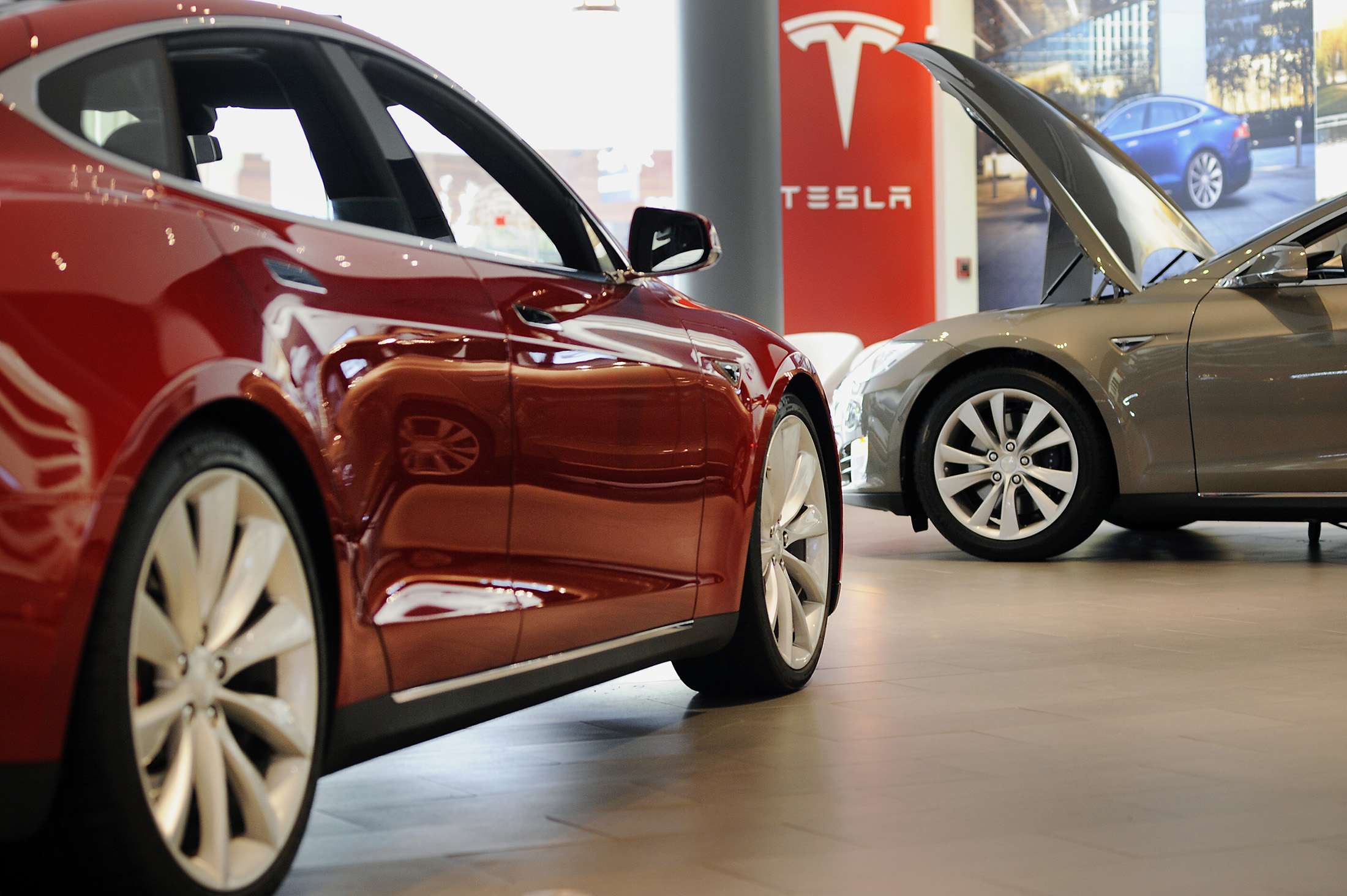Tesla Motors Inc. has launched a wholesale revamp of its stores worldwide as the electric-car company prepares to debut the Model X, its first sport-utility vehicle.
The effort is largely devoted to telling the Tesla story, critical for a young company selling a product that remains mysterious -- and intimidating -- to most drivers. During an exclusive tour of a newly refreshed store at the upscale, outdoor Santana Row shopping center in San Jose, California, Tesla representatives showed off interactive displays focused on four major themes: safety, autopilot features, the company’s charging network and the dual motors that power each axle.
"People who buy an electric vehicle go through a very different process than someone buying a car with an internal combustion engine,” said Ricardo Reyes, Tesla’s Vice President of Communications. "No one goes into a car dealership and says ‘How does a gas station work?’” But the first questions we get are always about charging.’’
Luring new customers and keeping current ones loyal to the Tesla brand is crucial if Tesla Chief Executive Officer Elon Musk is to reach his avowed goal of selling 500,000 vehicles a year by 2020. As Tesla has moved beyond tech-savvy early adopters to a more mainstream audience, customer education about electric drive is key. The shares tanked earlier this month when the company reduced its sales target for this year from 55,000 cars to as few as 50,000 and much is riding on the success of the Model X, an oft-delayed crossover SUV that was first unveiled in early 2012. First deliveries of the X are slated to begin in late September.
The retail refresh includes new oversized photographs of the Model S in recently introduced colors, like Titanium Metallic, on the walls of the store, and big graphics focused on the four main themes. Visitors can examine a Model S sedan, dual motor chassis and Supercharger.
In many ways, Tesla locations are much like the so-called experience stores once favored by Sony and other purveyors of consumer eletronics; the idea is less to sell a product on the spot than to let shoppers spend time with the brand. At Tesla, there’s no hard sell. "Product specalists” greet and educate visitors. And while plenty of people walk through the stores, many customers ultimately configure and purchase the car online.
Tesla has about 200 stores in North America, Europe and Asia, including two that opened in China this week. The company operates all of them, meaning it can control messaging, localize the glossy photographs of the Model S and ensure marketing materials are properly translated into different languages.
The stores are typically located in luxury malls. At Santana Row in San Jose, the store shares a street with Gucci and Kate Spade; a steady stream of curious shoppers wander in and out. The upscale locations are part of the company’s plan to build a luxury lifestyle brand. Earlier this year, Tesla hired a former Burberry executive named Ganesh Srivats to extend its reputation for luxury to a global audience. By pushing expensive clothing and accessories, Tesla boosts revenue and deepens its relationship with affluent customers.
Like BMW, Porsche and Ferrari before it, Tesla has its own fashion line -- the Tesla Design Collection, which includes a $300 tote bag, $100 sheepskin leather driving gloves and a $40 iPhone sleeve. Cycling jerseys will go on sale at most stores in October. Tesla’s product design team, which is based in Los Angeles, designs all of Tesla’s apparel and gear in-house.
Leather scraps from car interiors are reycled into hand bags, weekend bags and small cases for key fobs. The bags, such as the "Moab Weekender,” are named after specific Supercharger locations. Tesla has found that customers typically buy a bag that matches the interior of their car.
Further echoing the fashion industry, Tesla plans twice-yearly, seasonal revamps of the stores to generate buzz and attract shoppers while offering something new to existing drivers of the Model S sedan. The current revamp, now rolling out to stores in North America, will last through two quarters; the next will arrive in the first quarter.
"Tesla is able to pivot in their stores the way they release new software,” said Ken Harris, managing partner at Cadent Consulting Group in Chicago, which advises consumer and retail companies. "This is important to an emerging brand.”
(bloomberg.com)
www.ann.az
Follow us !











